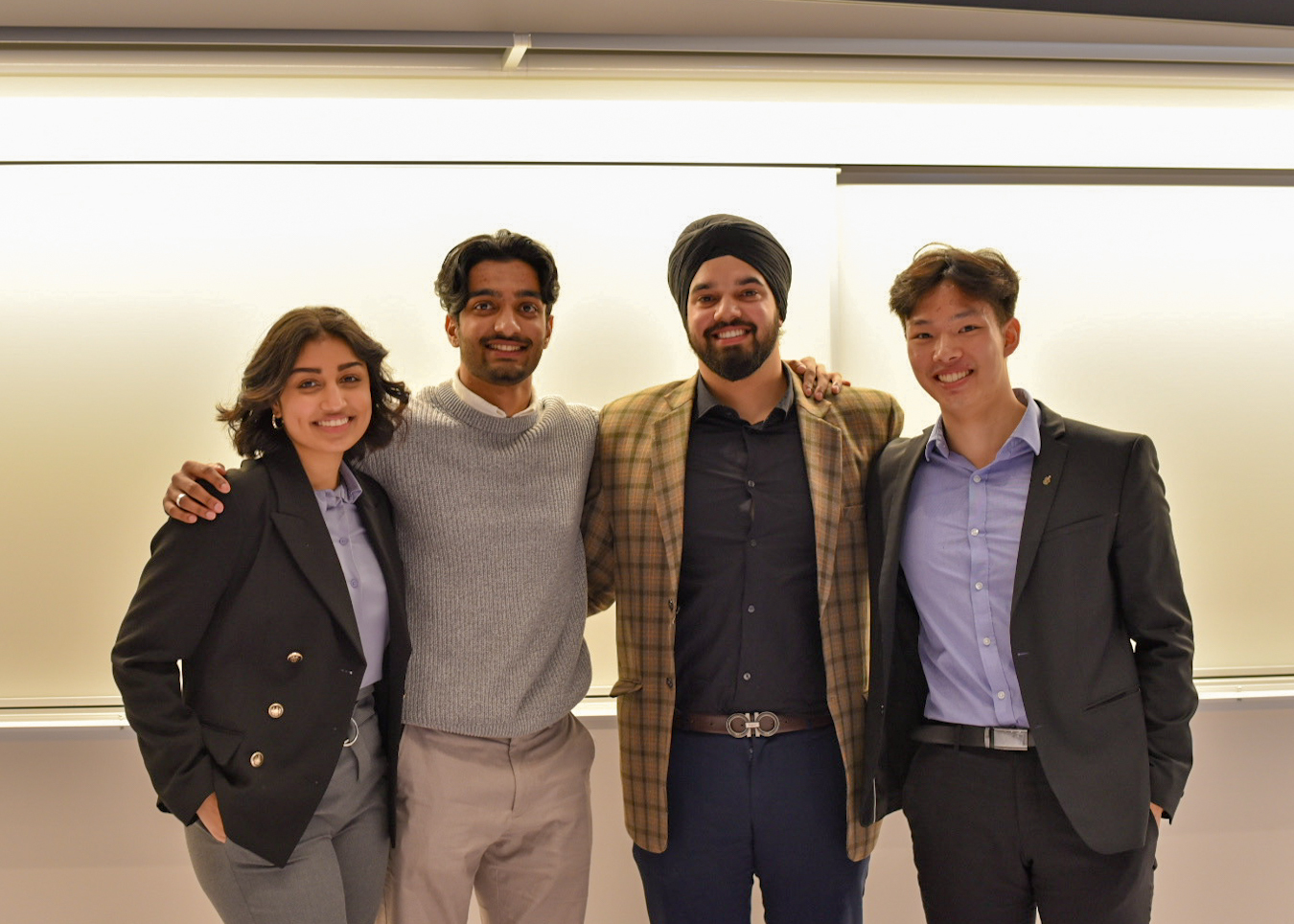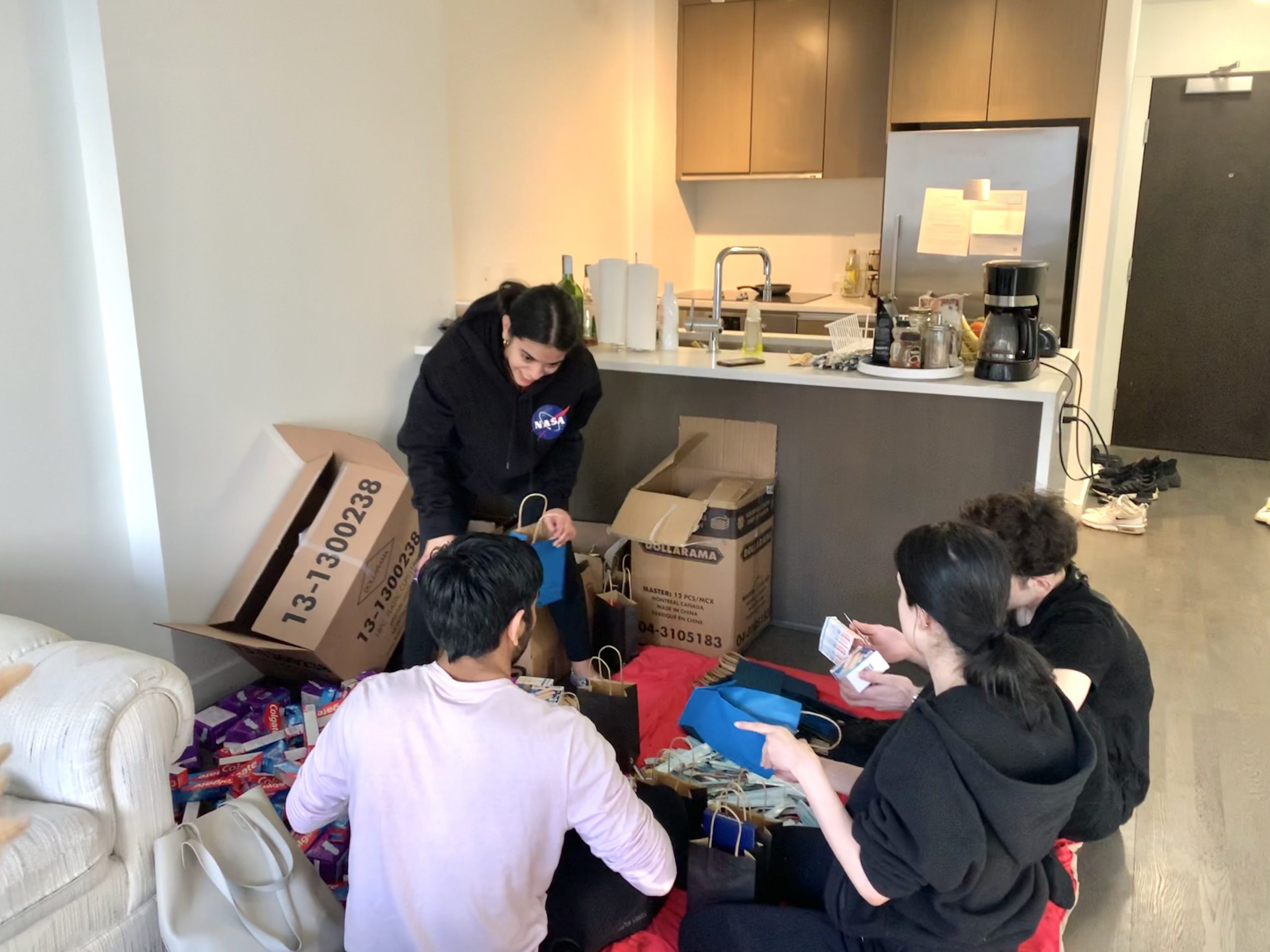Business creation in the health and wellness space, and within the broad scope of Kinesiology, is a growing area of focus for KIN students. Today’s job market is extremely competitive. Consequently, it is important to foster innovation, resilience, and versatility. UBC Kinesiology students are so aware of these important attributes that last year, KIN students Cameron Lee, Ahmed Masood, Patricia Melgar, and Ritika Saraswat founded the KUS Case Competition as a way to show to other students how kinesiology and business may be integrated within a professional setting. They wanted to demonstrate the importance of developing business skills such as public speaking, team collaboration, research analysis, problem-solving, and presentation.
We reached out and spoke to two of the founding KUS Case Competition members, Cameron Lee and Ritika Saraswat. Cameron spoke to us about the importance of the Case Competition to students, and Ritika relayed how she used her entrepreneurial skills to establish a consultancy for non-business students.
Cameron Lee
Cameron Lee is a 4th-year student in the interdisciplinary stream, graduating in Spring 2023. He states, “there are lots of post-grad opportunities for Kinesiology undergraduate students that are not commonly publicized or pursued. Through this competition, and the workshops and events leading up to it, it aims to provide students with that knowledge. Many KIN students believe it is challenging to find employment after their BKin, without pursuing graduate school; however, the degree does not, and should not define your employability. Through this case competition, the goal was to help KIN students apply their knowledge in a more practical job-based setting, show them other opportunities and ways of utilizing their KIN skillset, and build skills to help with employment upon graduation. Although we got to host this competition for the first time last year in a virtual setting, it was great to see this project come to life in person this year and to have been able to participate in it.
This year’s business partner was Westcoast SCI, a healthcare clinic based in Vancouver and Port Coquitlam that offers a variety of health services. The competition’s business challenge was to present a growth strategy solution for Westcoast SCI. Due to the COVID pandemic, they lost 80% of their loyal clientele and needed a strategy to steadily regain their lost numbers. They wanted to expand their presence on their social media platforms and within the community. They were seeking a strategy that would bring them an increase of two clients per week and $500 in recurring weekly revenue.

The panel of judges consisted of Sherry Han and Sara Cathcart, both recent graduates who are very business-minded. Sara is the founder of a clothing brand ‘Chattrbox’ and is a research scientist for Lululemon’s sport innovation team, and Sherry works as an experiential designer at IBI Group and does marketing for Chattrbox. The rubric was based on the uniqueness of the solution, the feasibility of the implementation plan, analysis, and presentation skills. “The competition has a lot of versatility with what can be written down in the case of whether it be more client or physician diagnosis-based, a KIN oriented entrepreneurship of a health product, or the growth of a health clinic,” explains Cameron.
The winner of this year’s KUS Case Competition was a team that included Cameron Lee and his teammates, Achyuta Sukumar, Gary Sidhu, and Ivran Rai. “We are all Kinesiology students with interests in business, so being able to integrate our academic passions and elevate both areas through this competition was rewarding.”
There were 13 teams that signed up to participate with 5 teams that competed, and a total of 18 students. The runners-up were Knightvision Consulting (2nd place), comprised of KIN students Aaron Laguerta, Julianna Pathyil, Kaishaun Carter, and Olivia Becher; and Kintellect, composed of Christoph Hager, Jessica Yuen, and Vanessa Meneghetti.
Congratulations to all participants!

Ritika Saraswat
Ritika Saraswat is a 4th-year student in the interdisciplinary stream, graduating in May 2022.
Ritika is a highly motivated entrepreneurial KINner who won the Canadian Management Consulting (CMC)-BC Student Award last year for her passion for, and excellence in, management consulting and leadership.
This year she went on to establish a social enterprise that includes a consulting service and educational podcast called Re-Defined. Her consulting company focuses on the idea of helping students redefine their experiences, no matter what their experience level or educational background. She felt it was important to establish this purpose because “coming from a Kinesiology background and being interested in business was challenging and made job-seeking difficult. Not only was I unsure of how to present myself and my KIN experience in a way that is transferrable, but I was also unsure of how I could find opportunities for more diverse experiences. I found that there are a lot of stereotypes out there with some people telling me I would never become a consultant, and it was not possible. Consequently, once I was able to make the transition, I decided to become that friend, mentor, or peer for other students who feel the same way – to empower them and show them how they can strategically present their experiences and learn how leverage networking and Linkedln contacts to do so.”
Ritika goes on to say, “I believe it is important that students from all non-traditional business backgrounds, including Kinesiology, to realize and be aware of possibilities outside of their major that are open to them and that they have the potential for.”

Ritika established podcast and YouTube channels for her company to reach an even wider audience. Many of the podcast and YouTube programs are aimed at BIPOC women. She believes that by coupling the YouTube channel with workshops and her mentorship programs, women of colour can be empowered with resources and equipped with skills that will help them pursue their passion. In the long term, she hopes that not only are women motivated and encouraged to apply to business positions, but that there will be a higher percentage of women taking on leadership positions.
She reflects, “I think when we talk about marginalized communities like BIPOC women, we see how representation plays a huge role in shaping not only how others perceive such groups, but also how it plays a significant role in shaping the identity of people who belong to these communities whereby we often see how it is the underrepresentation of women of colour in senior management positions. Women of colour often don’t apply as a result.”
Consequently, Ritika’s business hopes to give diverse women in leadership positions a voice and a platform to share their experiences and struggles, but also give them an opportunity to learn from others like themselves.